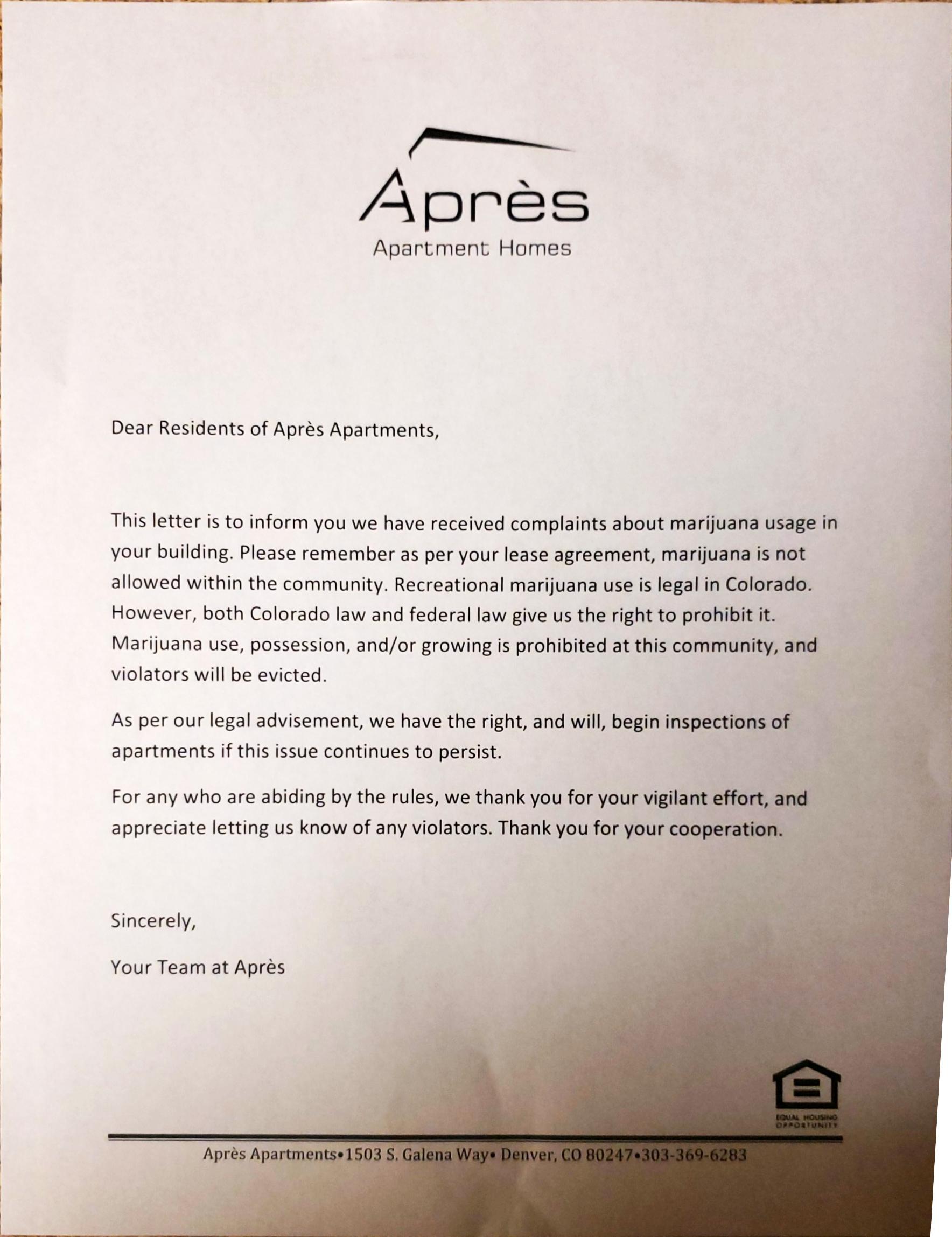A resident of an Aurora apartment building recently found a message posted on the doors of her hallway. Someone had apparently been using marijuana in the building, and management wasn't happy.
"Marijuana use, possession, and/or growing is prohibited at this community, and violators will be evicted," the letter stated.
And if it didn't stop, the notice warned, there would be "inspections of apartments."
That's according to a copy of the document provided to Denverite by a resident of the building. She said that she often can smell marijuana in the building, from a few rooms in particular -- but she's not a user herself, and she was angered and frightened by the threat of inspections.
"It's the implication that they can come in whenever they want and look around," said the tenant, who requested anonymity for fear of reprisals from her landlord. "I was angry the first time I saw it."

The inspections would probably be legal.
It's another illustration of the way that conflicting laws about cannabis can make life confusing in Colorado.
Lauren Davis, an attorney specializing in cannabis issues, said that the threat of inspections raised "outrage and disgust on a personal and moral level ..." But she found that the renter's lease appeared to allow inspections. (Denverite shared an anonymized copy of the tenant's lease with Davis.)
"People don't know the rights they are giving up when they sign these leases for these big buildings," she said.
In this case, the lease bans tenants from possessing or using illegal substances, and it notes that marijuana remains illegal under federal law.
The lease also allows building employees to enter apartments at "reasonable times" for a number of reasons, including the removal of "items prohibited under our rules."
It's not even unusual.
Leases frequently address marijuana, according to Jacob Eppler, an attorney whose focus includes landlord and tenant law.
"It’s common to put into leases something like, 'You’re not going to grow marijuana, you’re not going to have marijuana, or you’re not going to violate state, municipal or federal law,'" he said.
The tenant hadn't seen any actual inspections, she said, but the threat reminded her of the drug searches conducted by police at a Longmont Housing Authority building.
Tenants would have little defense from inspections, Davis said.
"You say no to the landlord, deny the entry, the landlord may now have grounds to evict you," she explained. "You’ve won the battle but lost the war."
There's no clear definition of how intrusive a search could be, but Eppler was doubtful that a landlord could reasonably start opening drawers. And there are a few other cases that a lawyer could raise in court, Davis said.
But very few evictees ever hire an attorney -- about 1 to 3 percent, according to one recent report.
The management of the building, Apres Apartments, did not respond to two requests for comment.
It all points to one key message, Eppler said: Read your lease.











